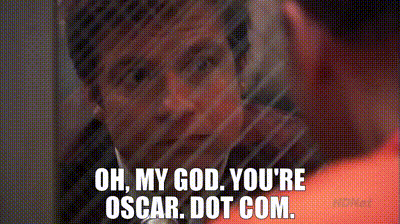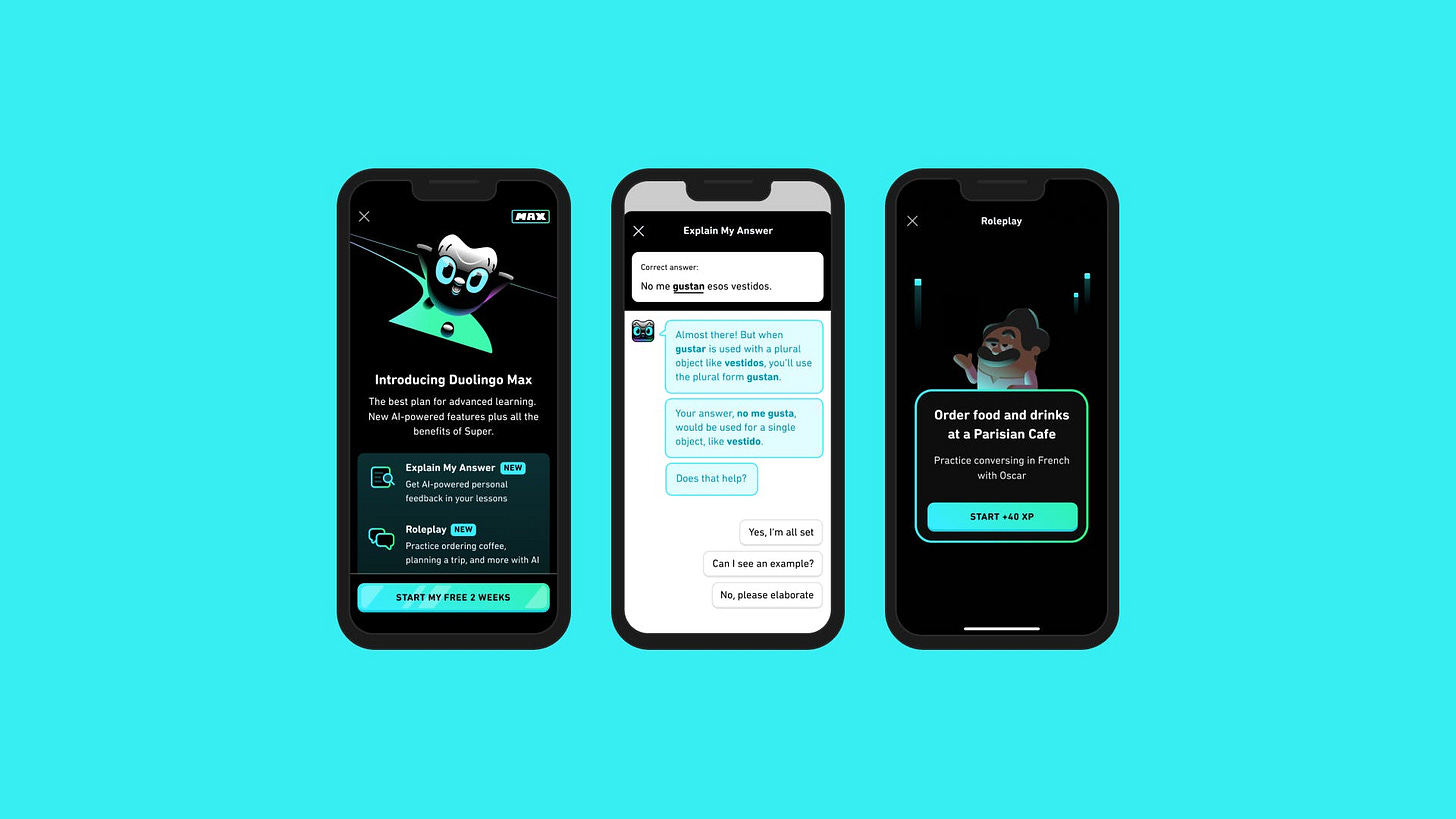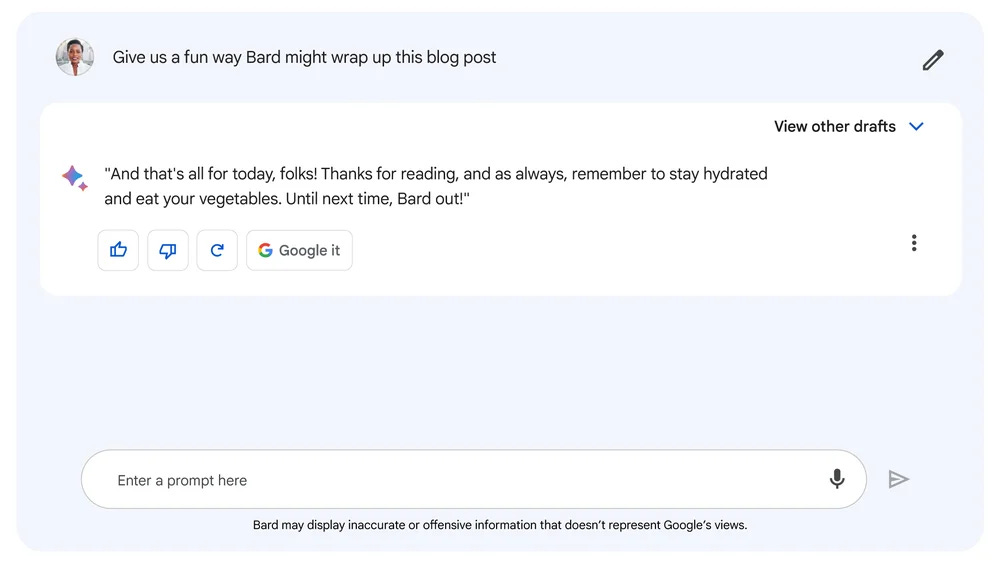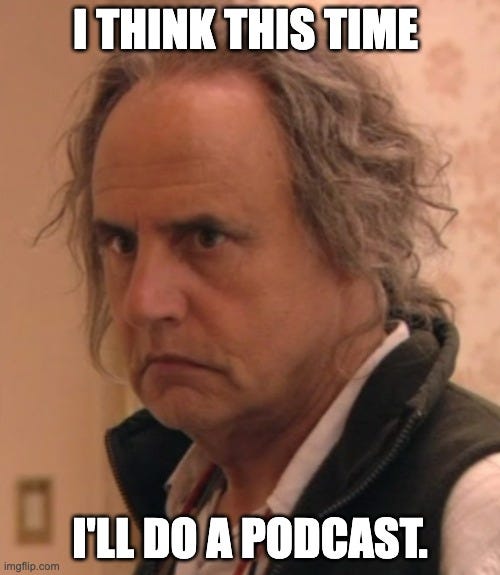🎆 GPT-4: The Internet - With A Chatbot!
🧐 Is AI as revolutionary as Bill Gates thinks?
You know that bit in Arrested Development where Oscar Bluth creates an ImOscar.com (“I'm Oscar..... Dot com”) website? And then every time someone mentions his name, he appends “dot com”?
The internet is reminding me a lot of that sequence ever since GPT-4 came along.
Duolingo Max - it’s Duolingo…
with a chatbot!
The new instacart. It looks like the old instacart
with a chatbot!
Intercom
with a bloody chatbot.
with the world’s most timid chatbot. (Not built with GPT, but in response to it. Shadowing, not surpassing.)
What did we expect?
OpenAI launched ChatGPT, which looked like a chatbot, so everyone is building chatbots. A person holding a hammer tends to see nails. Although in my case, I’d have a lot more questions about why exactly I had ended up holding a hammer in the first place.
🧐 Like this sort of thing? Then come to my free webinar on Tuesday 28th March!
I’ll be discussing ChatGPT and the future of work with the UCD Professional Academy 👇👇
Businesses adapt only as much as they have to, and understandably so. If they can tack on a chatbot, remain fundamentally the same at the core, and generate a little more value in the process, why wouldn’t they? Generative AI has the benefit of extending their creative capacity too - at least in terms of quantity. The Duolingo one even looks useful, although does come at an extra cost on top of the other subscription.
These are sustaining innovations: companies are improving their existing products for existing customers, using new technologies.
Gillette did this for decades, one additional blade at a time, until new rivals emerged with a business model that quickly took market share.
Now, this all looks like I am building up to the disruptive innovations in generative AI.
Disruptive innovations, like Dollar Shave Club and their many imitators, attack the competitive advantage of incumbents (like Gillette) in a way that the incumbents struggle to respond to. Namely, because it would mean a complete overhaul of their core operations.
Gillette could have cut its costs and product quality dramatically, stopped selling through third parties, and started shipping $1 blades direct to customers on a subscription basis, but they weren’t going to. Talk about a pain.
Customers preferred the new model, so Gillette paid a fortune for the upstart company.
I am using this example precisely because it is so archetypal. You already know it and that’s the point. What I want to assess is the potential of generative AI to create similar moments in other fields, with reference to this textbook case.
And look, if no-one had challenged Gillette until today, you just know they’d be launching a ChatGPT integration for their razors right now, which would have enough blades to tame Bigfoot’s mane at a cost of $549.99.
That “ChatGPT experience” will be commoditised very soon, anyway.
We will come to expect it and companies will want to offer it at the lowest possible cost. Startups that exist as little more than the ChatGPT API plus a few specific use cases will have no competitive advantage. Everyone can build tools using the same API and if they get stuck, ChatGPT can correct their code. I am staggered that companies like Jasper.ai are valued at over $1 billion, when they proudly boast that their tech is ChatGPT put to work on some marketing tasks.
This is where I wonder if generative AI is a disruptive wave or a rising tide raising all boats.
In the end, all streams lead back to the big tech ocean. It is a matter of choosing whether you want to build using the Microsoft-backed OpenAI API, or the Google APIs, or the upcoming Facebook versions.
Yet Google’s attempts to get involved with a lame chatbot remind me of the retailers who saw ecommerce coming, but expected it to be an extension of their physical retail stores. That allowed the likes of Amazon to enter with a business built for the online shopping age.
All startups have the advantage - fleeting though it is - of beginning from scratch with the best technology we have ever had.
Starting today:
Would you build a search engine and then add a chatbot to create the best information retrieval system on the planet?
Would you spend months creating static content for ecommerce websites, or would you auto-generate content tailored to each user as they arrived on-page?
Would you conclude that existing project management tools are sufficient, or could predictive AI help optimise workflows and automate approvals?
Would you use a painfully slow ticket system for technical queries, or would an AI layer help sort the queries and even fix the issues with minimal human intervention?
The list goes on and these are not the most profound questions we could address.
The answers are not obvious either, even if I have framed them to lead you towards the latter option each time. There are risks with generative AI that might reasonably steer you towards caution.
As the technology continues to improve, such questions are a vital starting point.
On that note
Bill Gates got involved in the debate this week. In a blog post, he states that the advent of generative AI is the most “revolutionary” moment in technology since the first graphical user interface arrived in 1980.
Gates can afford to be wrong, of course.
He elaborates by explaining the potential impact of AI on global wellbeing, notably in health and education. In some countries, we might prefer to see the launch of the internet, or smartphones, or even social networks as truly revolutionary moments that surpass the potential of AI.
However, Gates looks at the base numbers and notes that while these technologies have been beneficial, the advantages are unevenly distributed. Moreover, health and education levels - even in the richest economies, never mind the poorer ones - are not rising in line with the sophistication of these technologies.
This leads him to note:
“In the next five to 10 years, AI-driven software will finally deliver on the promise of revolutionizing the way people teach and learn.
It will know your interests and your learning style so it can tailor content that will keep you engaged. It will measure your understanding, notice when you’re losing interest, and understand what kind of motivation you respond to. It will give immediate feedback."
Five to 10 years feels cautious, which shows how far we have come in a short period of time. More accurately, it shows how far the technology has come. I can build a bare-bones version of what Gates describes using GPT-4, Python, and good old HMTL/CSS/JS today. In fact, I did so yesterday.
We, the people, are still catching up with the technology. And we change at a slower pace than the robots.
I use this cartoonish simplification in some of my investor pitch decks to convey the point:
Generative AI needs us. It needs our ideas, our content, our theories and our experiences.
Although its creators want to shield its inner workings, we can be sure that AI’s corpus of knowledge is distinctly human. It is not alchemical, mystical, or extraterrestrial.
We are not communicating with any higher being than a blog post when we ask ChatGPT for some ideas.
If all that people needed to improve their education was access to existing content, we would be making better use of our existing access to this content already.
This is where Gates’ airy timeframe of “five to 10 years” makes a lot of optimistic assumptions.
We need to put in work to make that vision happen, in collaboration with technology. We need to close the growing skills gap that prevents us from getting there. Otherwise, the capability of technology will grow and our use of the technology will stagnate.
Every time that I hear “the only limit is our imagination”, I shudder. Not because it is false, but rather because it is true.
Our imagination will soon extend only as far as “ask ChatGPT for some imaginative ways to use ChatGPT” and we’ll go in circles for eternity.
If we leave it to the big tech firms, they will narrow our horizons for us. They will pen us into whatever frame best suits their existing operations. Google will continue to make $100bn+ from its mediocre search experience and it will distract our attention with AI doodads on the fringes.
However, if this is a revolutionary moment for technology then they are the candle-makers adding new fragrances while the potential of electricity surrounds us. They are polishing the wheels on their horse-drawn carriages while today’s Henry Ford works on the automobile.
Until the next Big Thing comes along.










"Our imagination will soon extend only as far as “ask ChatGPT for some imaginative ways to use ChatGPT” and we’ll go in circles for eternity."
The darkest timeline